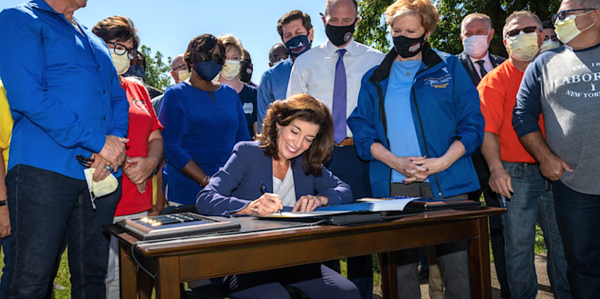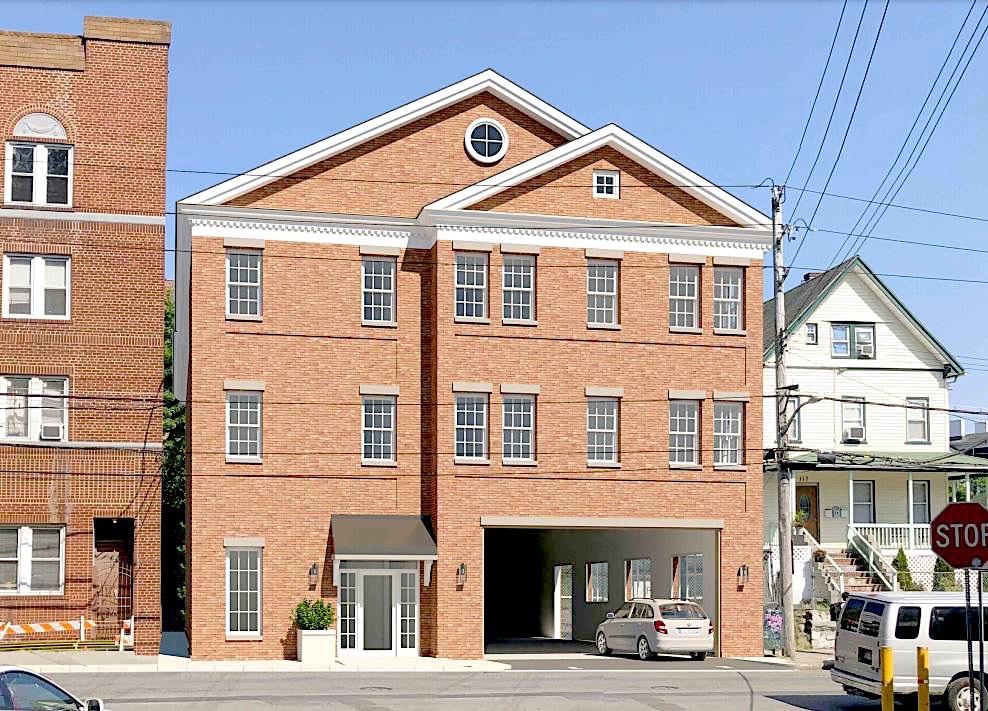Four pieces of legislation that were designed to have benefits for workers, but whose effects on employers remain to be fully judged, were signed into law on Labor Day by New York Gov. Kathy Hochul.
Hochul appeared at an outdoor ceremony in Buffalo, signing the bills while surrounded by labor union members and leaders. She then marched in the city’s Labor Day parade.
Hochul, who has said she intended to run for a full four-year term as governor, would need to maintain the labor support that historically has gone to Democratic candidates.
“We know what it’s like to build the American dream because of labor unions. And this is the most unionized part of the most unionized state in America,” Hochul said at the bill signing.

The new laws cover:
Ӣ the use of cameras to detect motorists who violate construction zone speed limits;
Ӣ contractor liability for wages owed by subcontractors;
Ӣ prevailing wages for building service employees in high-end co-op and condo buildings; and
Ӣ Shared Work Program unemployment benefits.
The speed camera law authorizes a program to test the use of cameras in construction zones. The program will determine whether stronger enforcement of reduced speed limits in these zones produces reductions in worker injuries and fatalities and whether money can be saved by reducing the labor costs associated with assigning police to enforce construction zone speed limits.
Data from the New York State Department of Transportation from 2010-16 showed there were 3,450 accidents in work zones on state highways that resulted in 50 fatalities and more than 1,100 injuries to motorists and workers.
The law making contractors liable for wages that their subcontractors failed to pay amends existing wage theft law. The thinking is that making contractors additionally liable for the wages increases the likelihood that exploited workers in the construction industry will be able to secure payment and collect unpaid wages and benefits for work that has already been performed.
Currently a worker may bring a private lawsuit against a direct employer to collect any unpaid wages, including overtime and fringe benefits.
The state Assembly and Senate in drafting the legislation suggested that direct employers can be an unscrupulous subcontractor or labor broker willing to hide assets, change corporate identity and take part in other unlawful practices to avoid liability and make themselves judgment proof from a wage theft action.
The thinking is that by holding the prime contractor of the construction project liable for all subcontractors that it chooses to utilize on a job site, the state would go a long way toward ensuring that exploited construction workers are quickly able to collect unpaid wages, while creating an incentive for the construction industry to better self-police itself.
The prevailing wage law was designed to ensure that building service workers at co-op and condominium buildings who receive a tax abatement are paid the prevailing wage.
The Shared Work Program law expands the existing program so employees can receive higher benefits allowed by the federal government. The program gives employers an alternative to laying off their workforce by allowing employees to receive partial unemployment insurance benefits while working reduced hours.
Federal law permits employees to receive up to 26 times the amount of what would have been their regular compensation including dependents’ allowances for a full week of work. The former state plan based amounts paid to employees whose hours had been cut on state unemployment benefits rather than the actual amounts the employee had been receiving from the employer.





















